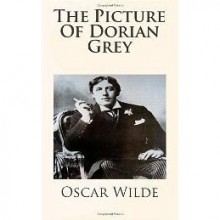
Chapter 5
So chapter 6 basically built on the fact that all the characters in the novel are obsessed with art - and most of them prefer it to real life. In this chapter it's Sybil Vane's mother who literally can't have a normal conversation with her own son, without contemplating its artistic quality:
The exaggerated folly of the threat, the passionate gesture that accompanied it, the mad melodramatic words, made life seem more vivid to her. She was familiar with the atmosphere. She breathed more freely, and for the first time for many months she really admired her son. She would have liked to have continued the scene on the same emotional scale, but he cut her short. [...] The moment was lost in vulgar details. It was with a renewed feeling of disappointment that she waved the tattered lace handkerchief from the window, as her son drove away. She was conscious that a great opportunity had been wasted. She consoled herself by telling Sibyl how desolate she felt her life would be, now that she had only one child to look after. She remembered the phrase. It had pleased her.
- The Picture of Dorian Grey, ch. 6
Honestly, I don't get these people. What's so wrong with their lives that they can't live in reality for one moment, but have to frame their entire existence within an artistic context? Something very strange is going on here.
The most interesting thing plot-wise that happened in this chapter was probably Sybil's brother, who basically made a threat upon Dorian's life, should he ever dare to hurt her. Some heavy foreshadowing there, I think ...
Chapter 7
Hooray for the first glimpse at the changed nature of Dorian's portrait! It was really creepy and I love the idea of mirror images and the play with the art imitating life/life imitating art trope that's at work here. The idea of the portrait becoming his conscious is quite an interesting one too, in this context. Let's see how this all plays out!

 Log in with Facebook
Log in with Facebook 







